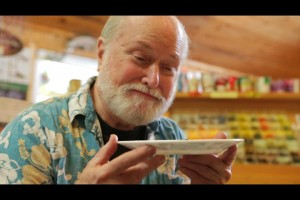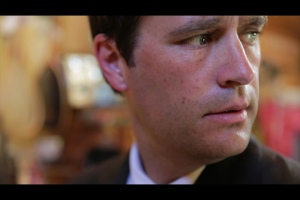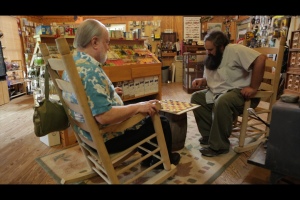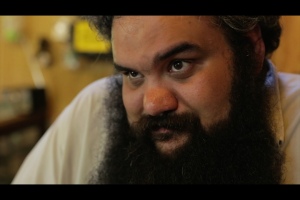Click below to listen…or read on…
http://www.jimreedbooks.com/mp3/howtodonothingallday.mp3
“Boy hidy, I sure wish I could own an old bookstore and sit around reading all day for a living!”
I get this all the time, in multiple variations, from customers and tire-kickers and browsers and odd assortments of other folks who’ve never been in the business of bookselling.
They see me behind the counter, static, sedentary, focused on repairing a book or entering a title into the database, or searching for a tome some caller needs now and this minute or yesterday in-a-hurry, if you please.
It’s all image and perception, this mythology about what old rare bookstores are like. I kind of like the fact that customers can’t see how it’s all done, the fact that it’s the bookdealer’s job to make it seem easy, effortless and somewhat magical.
Truth is, this is what today has been like thus far:
I pull into the driveway of an old suburban home at 8:15am, where a blue plastic tarp covers the garage entrance, barely obscuring the loot within—old Disneyesque collectibles, garden tools, moldy newspapers, cardboard-packaged kitchen gadgets, missing-paged cookbooks and the like. The proprietor drives up and unlocks the side door so that I can sort through the trove in several rooms. I spend the next 90 minutes hurriedly stacking books I wish to purchase, regretfully rejecting many that just don’t make the cut for a hundred and one reasons, smiling to myself at the amazing range of topics and generations and illustrators and authors whose works have traveled to this musty and lonely place. I feel sad at leaving them behind to an unknown fate, but it makes me feel good to rescue the foundlings I do pick in hope of providing a second life to each.
It is hot and stressful work, since I have to negotiate several sets of steps while peering over high piles of books I’m carrying to the car. Finally, when the vehicle is filled to the brim, I take my leave and head to the shop, hoping to arrive just in time to open the doors by 10:30. I run the car’s AC system full blast so that I’ll be dry and cool and calm by the time the first customer enters. I park the car, begin unloading its contents (this will take all of two days, one stack at a time), then neatly stacking, sorting, cleaning, pricing and readying the children for shelf-placement into the correct alphabetized categorized cubicles, where they will rest and thrive and eventually be selected by kindly foster parents who will care for them, enjoy them and, when the time is right, pass them on to yet another family.
The shop is filled with authors’ and illustrators’ lives between covers. Each little work will once more come alive at the kindly touch and perusal of the solitary understanding reader.
So, this is how I spend my morning so that you can glance at me behind the counter, wonder how I get away with doing not much of anything. The backstage work is everything. The preparation and cleanup are covert but necessary. The effort to please is paramount.
The rest of the day is spent showing off my adoptees and hoping you’ll see their beauty through my eyes.
Boy hidy, it’s fun doing something and making it look like nothing. Every magician knows this open secret. Ask me about our secret handshake
(c) 2012 A.D. by Jim Reed






